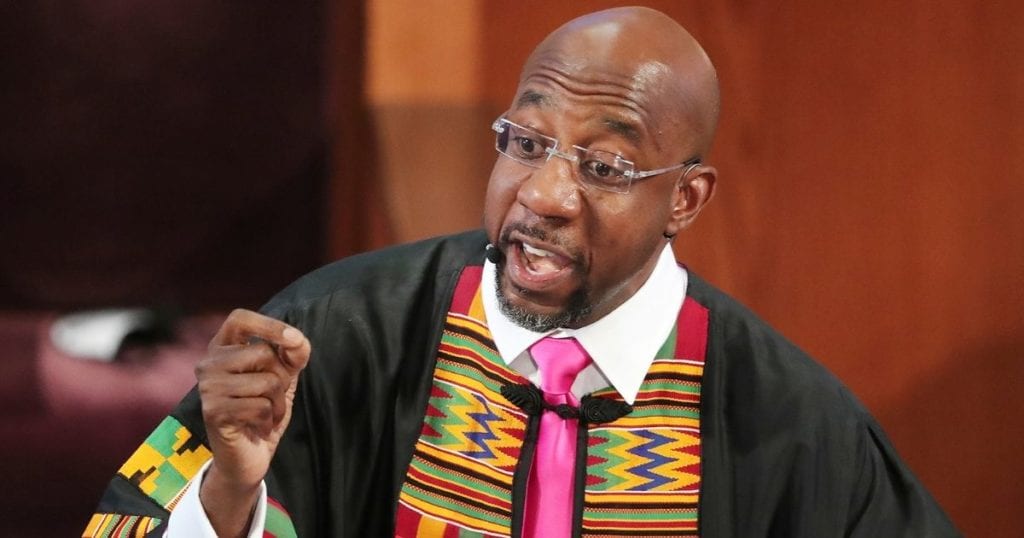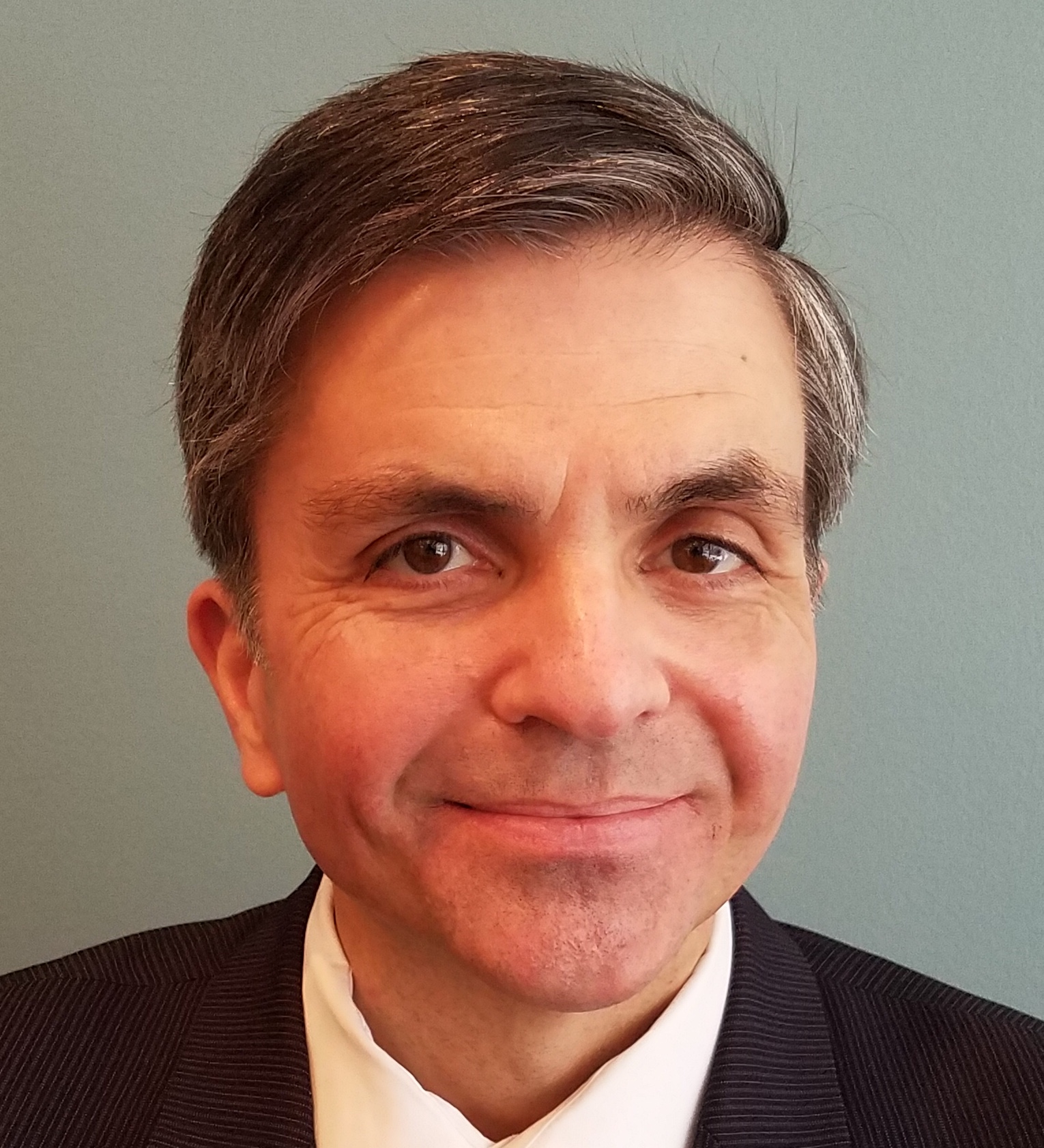Georgia U.S. Senate candidate Raphael Warnock, an Atlanta cleric in the Progressive National Baptist Convention, faces controversy for a recently unearthed 2011 sermon in which he said you cannot “serve God and the military.” He also said you cannot serve God and money and God and mammon. He explained at a press conference that he was expressing that “ultimate allegiance is to God.” It doesn’t appear that he is a pacifist or insisting Christians can’t serve in the military.
Some Warnock defenders have noted that he pastors the Atlanta congregation of Martin Luther King, Jr., who was a pacifist and a frequent critic of “militarism.” In his famous 1967 sermon at Riverside Church in New York denouncing the Vietnam War MLK called America the “greatest purveyor of violence in the world today.”
MLK was a sublime and courageous Civil Rights martyr but his pronouncements about war, which included naiveté about communist North Vietnam and its Vietcong proxies, have not aged well. Churchly critics of “militarism” are typically vague about their specific policy objections. Even when not specifically pacifist, they often leave the impression they are opposed across the board to significant military budgets without consideration of the geopolitical circumstances that might justify those budgets. Defense spending is as much an essential social service as spending on health and education. National defense is in fact the chief vocation of all national governments.
Warnock doesn’t appear as a pastor to have rejected historic Christian teaching about the military. He does seem decidedly to have left historic Christian teaching on abortion, having recently tweeted his support for “reproductive justice” etc. If his Christian theology as a pastor is to be challenged, it should be on this point rather than on war.
Yesterday I enjoyably interviewed Kansas City area pastor Brian Zahnd, who is outspokenly anti-war, about his theology on this question. He prefers not to self-identify as pacifist, since that term implies passivity, but rather as anti-violence. He recalls turning against traditional Christian teachings about war during and after the Iraq War. Largely he aligns with the late pacifist theologian John Howard Yoder and his disciple Stanley Hauerwas, both of whom make anti-war and anti-violence central to Christian teaching. Zahnd is distinct from others in that school for affirming the use of force through law enforcement while rejecting it through military action.
Zahnd and others insist the anti-war stance is the actual original Christian teaching because the Early Church supposedly rejected Christian participation in war. The evidence for this claim, or for any clear Christian teaching on war during the first several centuries, is unclear and disputed. What is more clear that as Christianity grew, and as Christians began to have influence in the councils of government, the range of their options and responsibilities expanded. A rising or majority religion has more social duties than does a small sect. To whom much is given, much or is required.
Clear Christian conversation about issues of war and peace is too seldom of late. The barbs over Warnock supposedly being anti-military are ancillary to this challenge. American Christians aren’t called to be pro-military for civic cheerleading purposes but rather for profound reasons rooted in historic Christian teaching. Pope Francis’s recent encyclical Fratelli Tutti seems to minimize historic Christian Just War teaching, which is unhelpful. As Father Drew Christiansen explained to me, the Pope does not categorically reject lethal force and seems to back the contemporary proposal of “responsibility to protect” in which armed forces are obliged to defend innocents. But armed forces have much wider responsibilities than altruistic humanitarianism.
It’s hard to get Christian political theology right without firmly admitting the state’s reliance on force through police and military. To his credit, Rev. Zahnd admitted that making electoral choices is difficult when all elected officials will by definition rely on coercive force. Usually Christian pacifists make lots of demands of government even while they deny the state’s reliance on violence. It’s a contradiction they mostly ignore. A serious Christian political witness cannot and must not ignore this contradiction.
Allegations about Reverend Warnock being anti-military are typical bric-a-brac of an election season. But hopefully, maybe, they will lead to a more substantive examination of Christianity’s carefully, centuries long developed teachings on government’s duty to use force in some circumstances essential to justice and order.






Comment by The enemy hates clarity on November 20, 2020 at 7:55 pm
Given John Howard Yoder’s predatory behavior towards women, it is hard to give credence to his support of nonviolence.
Comment by John Smith on November 22, 2020 at 4:53 pm
Not a great surprise. Shortly after my marriage, early in my military career, my wife and I tried local UMC’s near base. This was late 70’s and all of them were anti-military to some extent or another. So we stuck to the military chapel system (which had UMC chaplains on occasion) and after retirement have attended the UMC but never really forgot how we were treated and viewed back then. OTOH I’m not a fan of the US flag in the sanctuary.
The problem is the church is paying too much attention to the outside and not the inside. Maybe if the UMC spent more time on the behavior and discipline of Methodists and less time worried about political elections. Perhaps taking care of the sin within should have been the priority instead of casting stones at others.